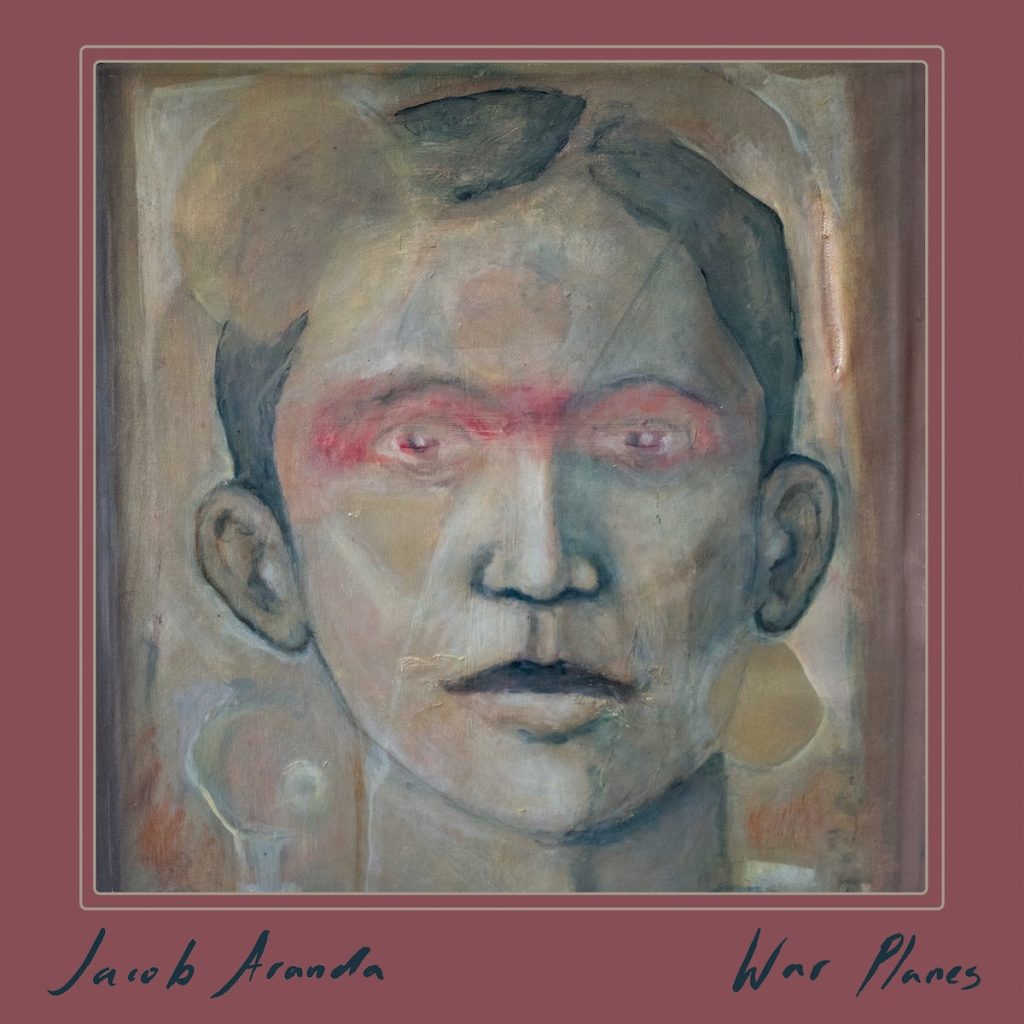ALBUM REVIEW: Jacob Aranda’s ‘War Planes’ Reaches for Healing After Trauma

EDITOR’S NOTE: As the end of the year approaches, we’re taking a look back at albums we weren’t able to review when they first came out. War Planes was released in September.
Trauma and sadness cut deep on War Planes, the gently devastating Americana gem from Jacob Aranda. Like a master short story writer, this Illinois-bred troubadour crafts unforgettable portraits of lives damaged by a heritage of neglect and denial. But underlying his heartrending vignettes is an impulse to seek healing, adding a note of hope.
For the past decade, Aranda has been a member of San Francisco’s Tarnation, the pioneering band led by Paula Frazer, who’s been putting her ethereal spin on alt-country since the ’90s. War Planes is cut from similar cloth. A poised crooner, Aranda combines the yearning spirit of Roy Orbison and the cosmic grace of Gram Parsons, calmly bearing witness however painful the subject matter. Fashioning a low-key soundscape of mostly acoustic instruments, from fiddle and vibes to guitar and banjo, the players include members of Tarnation, among them Frazer herself, who contributes bass and backing vocals.
War Planes opens in a mellow groove with “Glass Buildings,” where Aranda sings, “I don’t feel so sad anymore / I don’t want to feel bad anymore.” As the album unfolds, it becomes clear just how much harm there is to undo. Shaped by twangy guitar, the mournful title track reveals a child’s reaction to discovering the horrors of armed conflict, and the easy toe-tapper “Joshua” tells the tale of an angry 8-year-old, abandoned by his father and ignored by his drug-addled mother, who resorts to violence.
There’s more deep-seated anguish in the dreamy “Dream of Mexico,” which draws on the roots of Aranda’s real-life family in measuring the toll of generational abuse. “How I long to stop the hand / Of that angry and violent man,” he sings, bringing a chill to the soothing melody. Featuring elegant piano and steel guitar, the waltz “Nicasio Creek” ups the ante, framing the struggle to escape “old lies” as a matter of life and death, while an angelic vocal choir creates a comforting backdrop.
A keen awareness of mortality lends a sense of urgency to Aranda’s pursuit of relief. In the beautiful “My Lovely Friend” he admits, “No one’s here for long … Everything has to end / And I’ll disappear just like you,” a sentiment echoed by the melancholy “Strangers in a Field,” where he’s “just passing through.”
Not for the timid, despite its genuine charms, War Planes is a haunting study of a soul searching for rebirth.
Jacob Aranda’s War Planes was released Sept. 1 on Speakeasy Studios SF.



